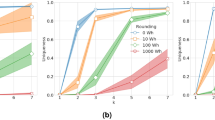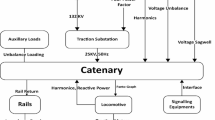Abstract
AS many of your readers have doubtless read Prof. Perry's interesting paper on the future development of electrical, appliances, a remark on one or two points might not be out of place. In speaking of the application of electricity to railway travelling, Prof. Perry says that the weight of the train would be much reduced under the proposed conditions, and rail friction would be minimised. It strikes us that to have light trains would not be altogether an advantage, for several reasons. The lighter the train the less profitable would be the vis viva against a strong wind (and the latter is an important element in railway locomotion). Again, the stability of a heavy carriage is much greater than that of a light one, and a heavy engine in front of the train must steady the whole system. It would be interesting to ascertain from a practical engineer whether a train of six coaches with self-propelling powers could safely run at a speed of fifty-eight miles an hour.
This is a preview of subscription content, access via your institution
Access options
Subscribe to this journal
Receive 51 print issues and online access
$199.00 per year
only $3.90 per issue
Buy this article
- Purchase on SpringerLink
- Instant access to the full article PDF.
USD 39.95
Prices may be subject to local taxes which are calculated during checkout
Similar content being viewed by others
Author information
Authors and Affiliations
Rights and permissions
About this article
Cite this article
VICARS, G. Future Development of Electrical Appliances. Nature 23, 528 (1881). https://doi.org/10.1038/023528a0
Issue date:
DOI: https://doi.org/10.1038/023528a0



